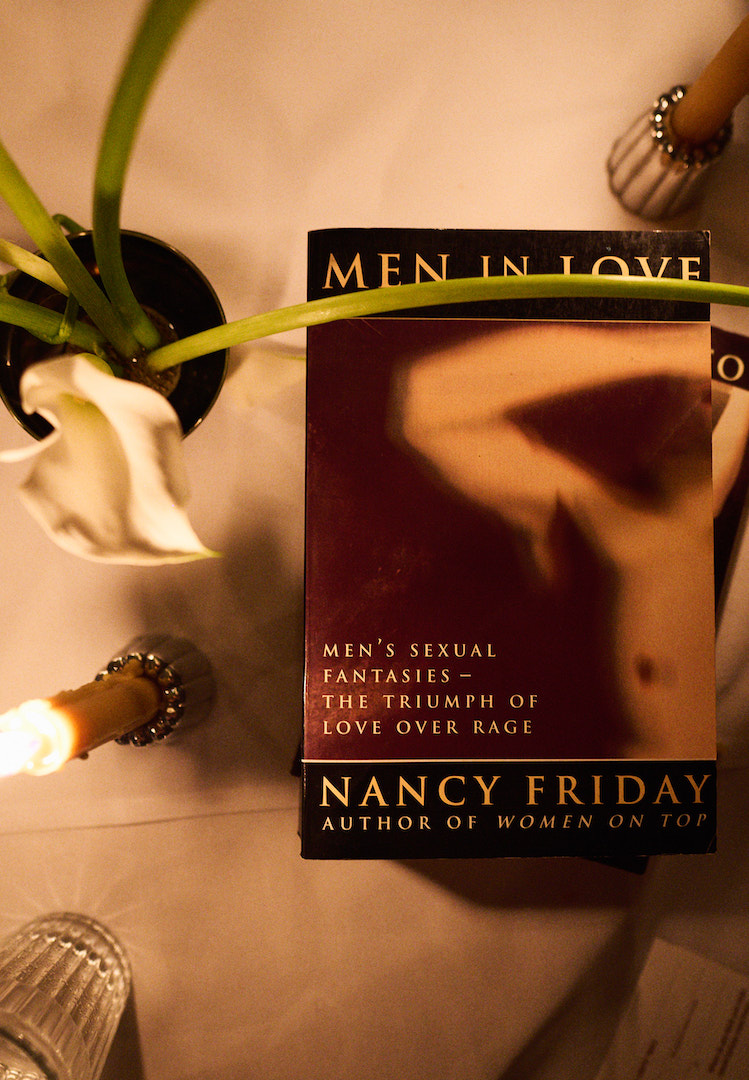What is anorgasmia, and why aren’t we talking about it?
IMAGE VIA @DEGOEY_PLANET/INSTAGRAM
WORDS BY ELEANOR WILSON
You may not be familiar with the term, but you might be familiar with the experience.
If we’re being totally transparent, most of us have probably failed to achieve orgasm at least a handful of times in our lives. And while it’s a normal part of life, it’s often accompanied by feelings of awkwardness, shame or inadequacy.
While many women find comedy in the unrealistic depictions of female ejaculation in pornography, many of us still harbour a burdening sense of pressure to ‘perform’ in bed. And if sex doesn’t end in the ‘success’ of an orgasm, we push it under the rug and try our best to forget about it. At least the male was able to finish, right?
For more sexual health content, head on over to our Health section.
For heterosexual partnered sex, sometimes the inability to orgasm comes down to the fact that a lot of men approach the clitoris like they’re scratching a record at a DJ set. In their defence, this aggressive form of stimulation is probably learned from the aforementioned unrealistic depictions of porn, but come on, we aren’t trying to light a fire here boys!
Jokes aside, for other individuals, not being able to ‘get off’ can be extremely distressing, and is actually classed as a sexual dysfunction called anorgasmia. Sexologist Laura Miano describes anorgasmia as “an inability to orgasm during either partnered or solo sex”.
Research on the topic is sparse and ongoing, but it is estimated five to ten per cent of females face problems with achieving an orgasm. That number sits slightly lower for men, of whom three to four per cent encounter some form of anorgasmia, mostly typified by delayed ejaculation, especially in older men.
Why do some people experience an inability to orgasm?
It’s worth noting anorgasmia is an umbrella term in itself, and some types of anorgasmia are much more common than others. Primary anorgasmia describes an individual who has never experienced an orgasm, despite adequate stimulation. If you’ve been able to orgasm in the past, but can’t anymore, that comes under the label of ‘secondary anorgasmia’.
Or, like many females, you might have situational anorgasmia, where you are only able to achieve orgasm in specific types of sex (usually masturbation and oral sex). This one is quite pertinent in the bid to destigmatise sexual dysfunction.
In fact, it’s estimated over 80 per cent of females are unable to climax from penetrative sex alone. And while this doesn’t mean we all need to seek out treatment for anorgasmia, it’s nice to know we’re in it together.
View this post on Instagram
Laura says there is a range of different factors which could trigger anorgasmia. “The main one is performance anxiety and spectatoring – when somebody is worried about how they look, how long they are taking, whether their partner is getting bored,” she explains.
This goes for solo sex and masturbation, where the anxiety and pressure to achieve orgasm can frustratingly inhibit it from happening altogether. Lack of sexual communication in the bedroom can also reduce your chances of reaching the big O, Laura adds.
“Often people find it hard to communicate what turns them on so they don’t get much opportunity to do the sexual acts that would get them to orgasm,” she tells me. Yup, kink-shaming culture really is a buzzkill when it comes to bedroom antics.
Medical conditions like multiple sclerosis, endocrine disorders and prescription medication could also be the reason you can’t climax despite stimulation. It is estimated 40 per cent of individuals on SSRI medication (usually used to treat depression and anxiety) develop some form of sexual dysfunction.
I think I might have anorgasmia, what happens next?
First of all, try not to become overwhelmed by feelings of panic or shame. Remember you aren’t alone, and if anorgasmia doesn’t negatively impact you, and you’re happy living sans-climax, there’s no need to seek treatment for it!
Having said this, if it is something you’d like to address, booking an appointment with a sexologist is a great starting point. A qualified sexologist can help address the psychological factors that could be contributing to anorgasmia, such as sexual anxiety and lack of sexual communication.
They also have a wealth of knowledge about physical techniques that can help you achieve orgasm, such as incorporating sex toys. “Air suction toys are great for people with anorgasmia,” Laura tells me. But if you do choose to experiment with sex toys to help anorgasmia, she recommends keeping the vibration on low, to avoid feeling numb or too sensitive down there.
There are even a number of online resources to address the issue, such as instructional website OMGyes and mindful sex app Ferly, which Laura says are “super beneficial” for individuals with sexual difficulties like anorgasmia.
View this post on Instagram
The big O doesn’t have to be the end goal of sex
We’ve established there’s nothing explicitly ‘different’ about people who have anorgasmia. They aren’t missing a G-spot, and it doesn’t mean they’re on the asexual spectrum. In fact, Laura says sex is still just as pleasurable for people with anorgasmia.
There’s no denying many of us see an orgasm as the end ‘goal’ of sex and the ultimate form of pleasure, but placing it at the finish line of all sexual encounters can be harmful.
“Even when people can orgasm during sex, I often give homework where they have to avoid orgasms during sexual experiences. This helps people to enjoy and fully experience the journey, not just the destination,” she shares.
Pushing your attention away from orgasm during sex can be difficult when you’re so used to it, but instead, try to view sex with a ‘cup half full’ mentality. Push your attention away from what you aren’t feeling (orgasm), and focus on what you are feeling in that moment. How do your genitals feel? What are you feeling emotionally? Do you feel satisfied and connected to your partner?
In order to know what you’re looking for when experiencing partnered sex, Laura says it’s important to understand what you like when you’re by yourself. “I always suggest exploring your own body with masturbation so you know what to assert during partnered sex.”
In a perfect world, sex is synonymous with liberation. It’s one of the most natural activities we do as humans, and its benefits extend far beyond the feeling of pleasure and orgasm. It allows us to feel free and connected, allowing us to shed the inhibitions we feel restricted by in everyday life.
The orgasm itself is a wonderful byproduct of sex, but we need to peel away the misconception that it happens every time, for everyone. The more honest we can be about our sexual experience, the closer we can get to a more inclusive sex culture.
This article was originally published on July 13, 2021.
For more information about anorgasmia, head here.













